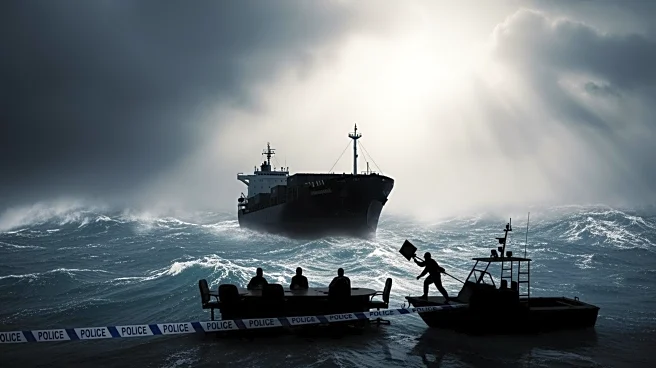What's Happening?
A tanker carrying gasoline, identified as the Malta-flagged Hellas Aphrodite, was boarded by attackers off the coast of Somalia. The attackers, suspected to be Somali pirates, used machine guns and rocket-propelled grenades during the assault. The crew
of 24 mariners secured themselves in the ship's citadel for safety. This incident marks the first commercial ship hijacking by Somali pirates in over a year, amid a resurgence of piracy in the region. The attack occurred as the vessel was en route from Sikka, India, to Durban, South Africa. The European Union's Operation Atalanta, a counter-piracy mission, is responding to the incident.
Why It's Important?
The resurgence of piracy off the Somali coast poses significant threats to international shipping routes, particularly in the Red Sea corridor. This area is crucial for global trade, and increased pirate activity could lead to higher shipping costs and insurance premiums. The attack highlights the ongoing instability in the region, exacerbated by conflicts such as the Yemen crisis. Shipping companies may need to enhance security measures, potentially affecting global supply chains. The incident underscores the need for continued international naval patrols and cooperation to combat piracy.
What's Next?
The international community, including naval forces from the EU and other stakeholders, is likely to increase surveillance and security measures in the region. Shipping companies may consider deploying armed security teams on vessels transiting high-risk areas. The incident may prompt discussions on enhancing international cooperation to address the root causes of piracy, such as economic instability and lack of governance in Somalia.
















